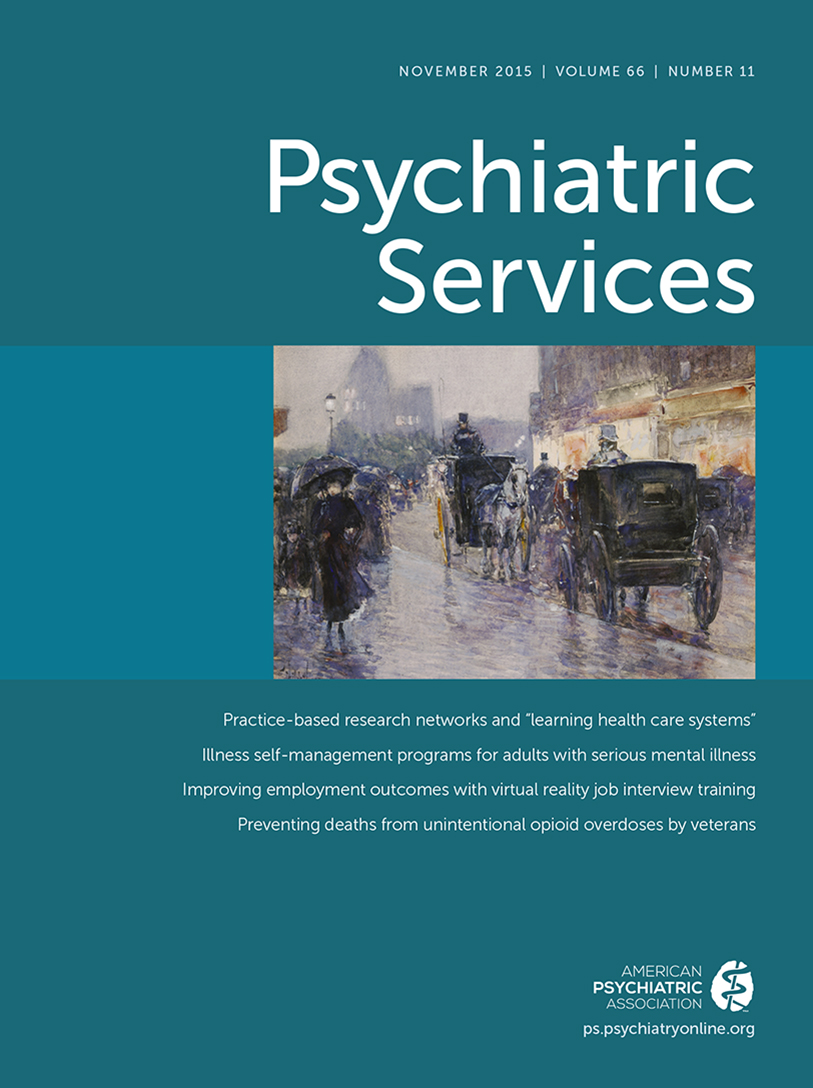References
- 1 : The Recovery-Oriented Care Collaborative: a practice-based research network to improve care for people with serious mental illnesses. Psychiatric Services 66:1132–1134, 2015 Link, Google Scholar
- 2 : Rapid, responsive, relevant (R3) research: a call for a rapid learning health research enterprise. Clinical and Translational Medicine 2:1–6, 2013 Crossref, Medline, Google Scholar
- 3 : Evolving Models of Behavioral Health Integration in Primary Care. New York, Milbank Memorial Fund, 2010 Crossref, Google Scholar
- 4 : A pilot test of a peer navigator intervention for improving the health of individuals with serious mental illness. Community Mental Health Journal 50:435–446, 2015 Crossref, Google Scholar
- 5 : Reducing health disparities for people with serious mental illness: development and feasibility of a peer health navigation intervention. Best Practices in Mental Health 9:62–82, 2013 Google Scholar



